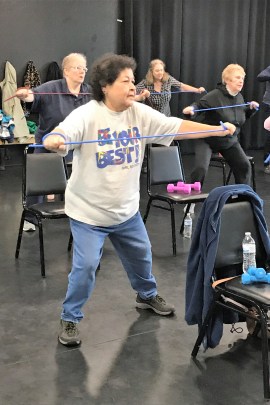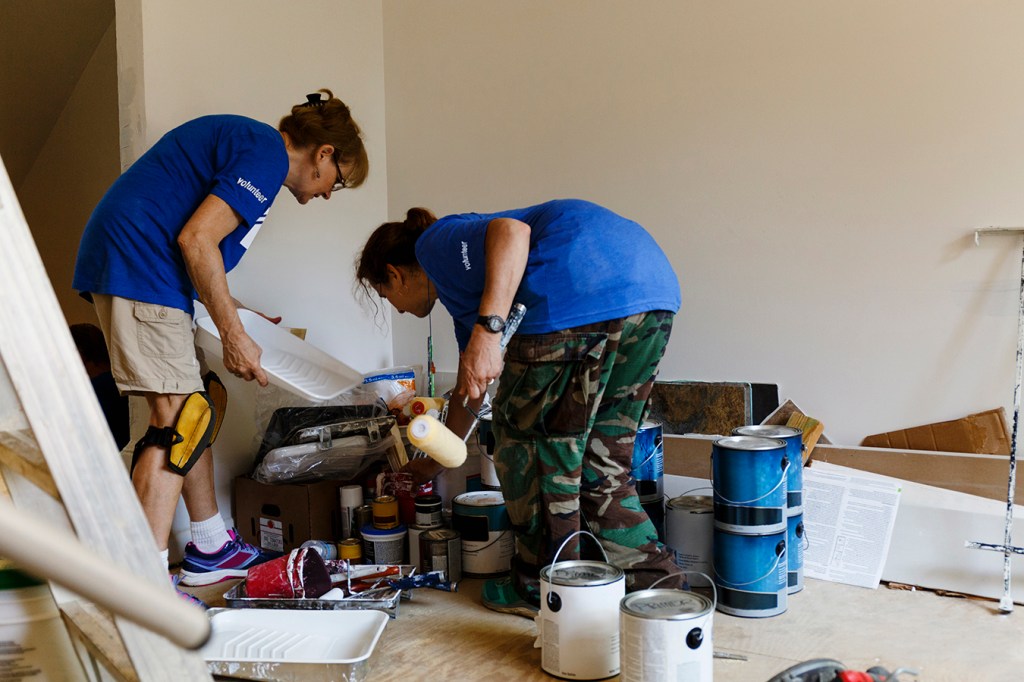A gnawing sense of irrelevancy and invisibility suddenly hits many aging adults, as their life roles shift from hands-on parent to empty nester or from workaholic to retiree. Self-worth and identity may suffer as that feeling that you matter starts to fade. Older adults see it in the workplace when younger colleagues seem uninterested in their feedback. Those who just retired might feel a bit unproductive.
New research suggests this perception of becoming irrelevant is very real. And that’s why some seniors are determined to stay social, remain relevant and avert the loneliness often linked with aging.
“As people get older, there are fewer and fewer opportunities to feel like they make a difference and matter,” said sociologist Markus Schafer, a faculty associate at the Institute for Life Course and Aging at the University of Toronto.
“One thing about Western societies, in general, is they’re much more a youth-centered society and don’t oftentimes give careful thought on ways older people can contribute to the lives of future generations,” Schafer said.
When people reach their 60s, opportunities to offer advice drop dramatically, said Schafer, the lead author of a study on how offering advice gives life more meaning. Overall, 1 in 5 adults in their 60s said they did not give advice to anyone in the past year, and the rate dropped to 1 in 4 people 70 and older, according to a 2016 study of more than 2,500 adults published in Social Psychology Quarterly.
That’s not all. A national survey of 1,000 adults age 64 and older conducted in August by the California-based nonprofit SCAN found almost one-quarter of respondents agree “they aren’t important to anyone anymore.”
Having purpose and meaning forestalls loneliness, which takes an emotional and physical toll. Studies by Lisa Jaremka and other researchers have found that loneliness is associated with weaker immune systems and poorer physical health.
In one study published in 2013, Jaremka, an assistant professor of psychological and brain sciences at the University of Delaware in Newark, found that lonely people had more inflammation than those who felt more socially connected. Chronic inflammation is linked to various diseases, as well as functional decline and frailty.
“Maintaining that social engagement can give you a greater sense of purpose and give a sense of motivation that can make you behave in ways that are better for your health,” said sociologist Patricia Thomas, a faculty associate in the Center on Aging and the Life Course at Purdue University in West Lafayette, Ind., who studies social engagement among older adults.
Some older adults in Austin, Texas, are finding their purpose with a community created by Aging is Cool, an active-aging company founded just over a year ago.
“It’s about staying visible and staying engaged,” co-founder Amy Temperley said. “If you hunker down in your house and you don’t interact with the world, you will decline.”
The model she and her husband, Damien, devised offers options to keep individuals active and engaged. For $24 a month, members can attend unlimited classes and group activities, including brain and memory training; social and volunteer activities and fitness classes that stress strength, mobility and flexibility.
Rosie Cortez, 66, a grandmother of two, got involved after a heart attack spurred her to lose weight and exercise more. She also needed more stimulating company.

Rosie Cortez (Sharon Jayson for KHN)
“At one time, I did spend a lot of time with my grandkids and I loved it — but you also need adult time,” Cortez said.
“We really wanted people to have a sense of community,” Amy Temperley said. “Now they’re starting to talk about themselves as a tribe. They get together after classes. It’s evolved into not what we expected but better than we expected.”
In addition to the membership group, the company offers 40-50 classes a month at assisted living and senior living communities. It also maintains a nonprofit fund at a local community foundation, allowing it to raise money for free classes at senior housing and recreation centers in low-income neighborhoods to spur social connections.
Similar efforts are underway across the country as organizations from the National Council on Aging to local YMCAs as well as city parks and recreation centers create social and recreational programs for “active older adults.”
A program to boost well-being, strength and social activities called SilverSneakers, for adults 65 and older, is free with certain health plans. Although approaches vary, the overall aim for active older adults is to promote physical and mental agility and keep loneliness at bay.
Among these strategies, volunteering is now seen as an effective way to battle irrelevancy and loneliness. Buoyed by research that’s found health benefits for older adults who volunteer, one such study led by a Florida State University sociologist showed that volunteering appeared to have the same positive influence on health as exercise and not smoking.
“Volunteering is shown to be, in many ways, a health behavior,” said Dawn Carr, an assistant professor of sociology at Florida State in Tallahassee.
Her study, published last year in the Journals of Gerontology: Social Sciences, found that “becoming actively engaged in volunteering in later life is related to lower levels of subsequent disability.”
Retired school nurse Linda Levy, 69, has always been an active volunteer, even as a mother working full time in Pikesville, Md. But after she and her husband moved to Austin about 18 months ago to be closer to their son’s family, Levy is doing something new — working part time in retail.
“I just wanted to do something I could fit in with my schedule for family and to meet people,” she said. “It gave me a purpose. I needed to be able to say ‘I’m going to work.’”
Finding employment isn’t so easy for older adults, which is why job search strategist Toby Haberkorn co-wrote a book, out last year, titled “Best Job Search Tips for Age 60-Plus: A Practical Work Options Resource for Baby Boomers.”
Haberkorn advises job seekers to update their appearance and “show you have the energy and expertise to manage the workload.”
Haberkorn’s tips to stay relevant in the workplace are also pertinent in daily life: “Show flexibility and adaptability rather than regurgitating the past. Become reasonably social media- and technology-savvy. Familiarize yourself with what young employees have an interest in — the music, whatever current events, the apps — and be able to have a reasonable discussion. Do not say ‘Boomers have a better work ethic.’ Never, ever say ‘I’m having a senior moment’ or ‘I have a child your age.’ Don’t discuss your grandchildren. And keep your aches to yourself.”
Haberkorn also advises taking a hint from 96-year-old actress Betty White.
“She still produces good work and she has a great amount of energy,” Haberkorn said. “Her entire package promotes a youthful and optimistic attitude.”
KFF Health News' coverage of these topics is supported by John A. Hartford Foundation and The SCAN Foundation







